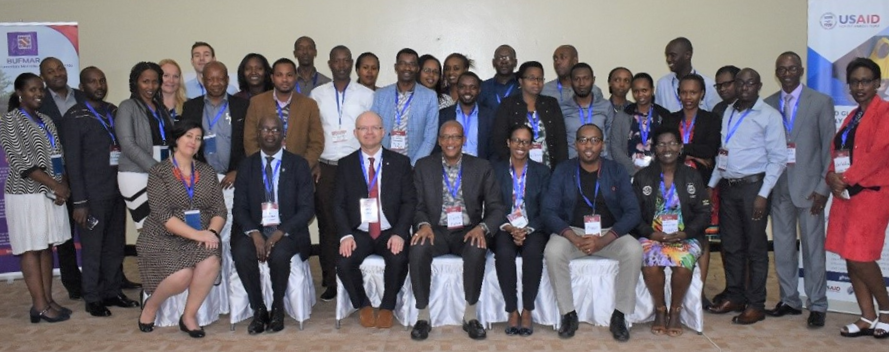
Last November, GHSC-PSM partnered with the Bureau des Formations Médicales Agréées du RWANDA (BUFMAR) to provide training to key staff and leadership on “Inspirational Supply Chain Management (SCM) Leadership and Change Management.” During the course, participants completed an online SCM leadership and management self-assessment exercise, participated in a four-day, face-to-face interactive workshop, implemented individual and group workplace capstone projects for five months, and participated in a workshop to report out on capstone projects.
The 27 course participants included 14 staff from BUFMAR, two members of the BUFMAR board and 11 director generals of district hospitals who work closely with BUFMAR. The course aimed to increase capacity and improve performance of BUFMAR staff to ensure a reliable supply of pharmaceutical commodities and medical equipment and to foster better coordination among participants after completion of the course.
At the end of April, GHSC assessed leadership and change management competencies of four groups formed for the course and found very promising initial results. Data availability and accuracy help identify and resolve supply challenges throughout the supply chain. Two key measures of SCM quality improvement – utilization of the electronic logistics management information system and data accuracy – showed measurable improvement at eight of 10 district hospitals. In another key measure, BUFMAR’s order fill rate increased from 45 to 55 percent, leading to improved access to medicines for patients.
Also as part of the course, participants developed two essential standard operating procedures (SOPs) needed to improve inventory management activities at BUFMAR, developed a capacity building plan for staff, and engaged with management to set aside money for training based on staff capacity building needs.
“We are glad to have participated in this important course. We have not only been prepared to become more effective leaders in managing supply chain change but also learned different skills that will enable us to lead, advocate for, monitor, and support activities in support of improved health results” said Dr. Rutagengwa William from Nyamata District Hospital.
The course included the collaboration of key stakeholders, including USAID and the Regional Center of Excellence for Vaccines Immunization and Health Supply Chain Management (RCE-VIHSCM).
Moving forward, BUFMAR management and their stakeholders will continue to monitor results. Ultimately, the impact on the health system and patients is essential. In particular, participants will monitor the order fill rate to help measure and improve client satisfaction and will aim to maintain good relationships with suppliers to sustain gains in the commodity procurement process.